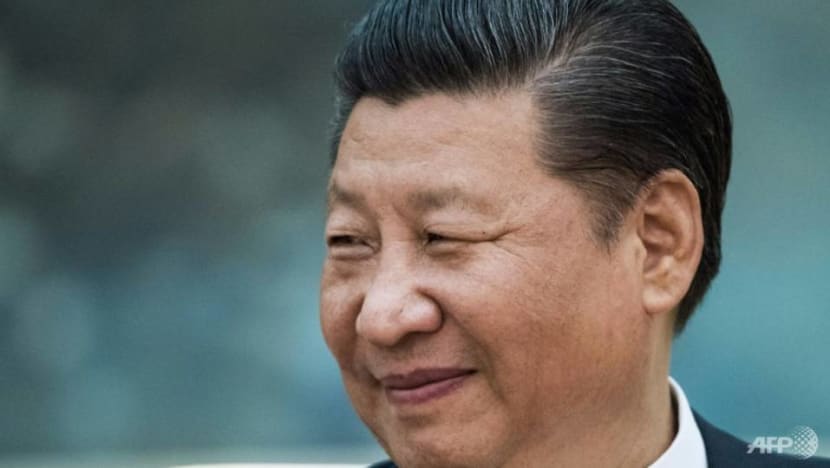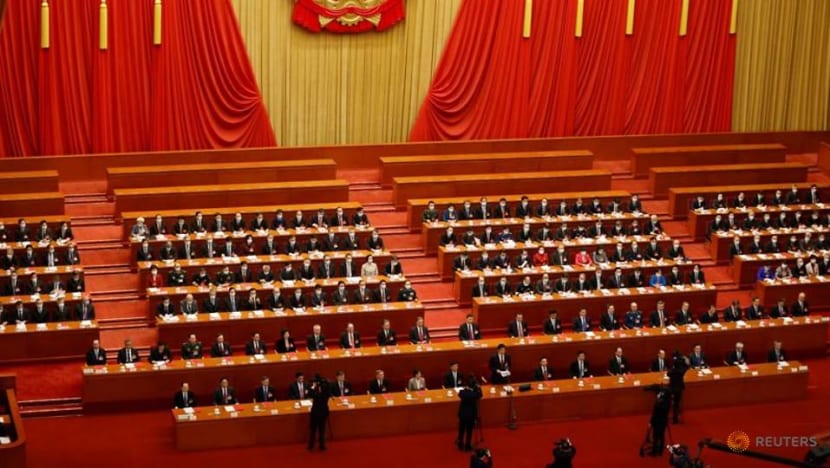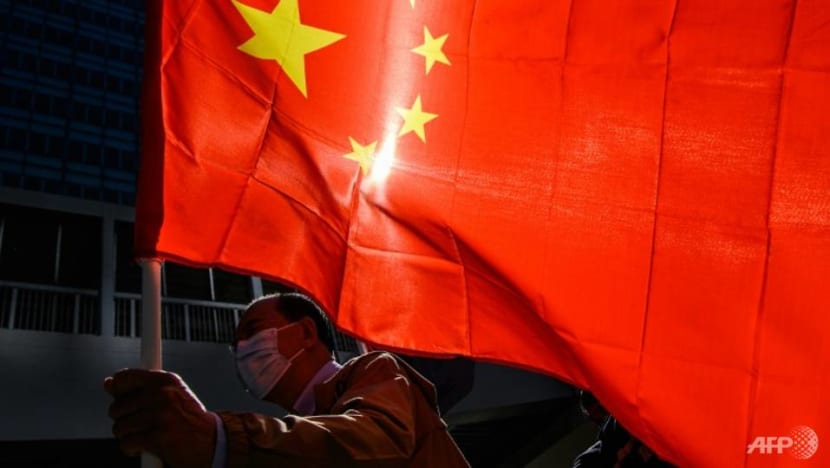commentary Commentary
Commentary: Some soul-searching needed in China’s fresh push to make friends and influence people
China’s aggressive diplomatic tactics and wolf-warrior diplomacy have cost it dearly, but there’s some hope President Xi Jinping’s latest declaration signal change, says Professor Bo Zhiyue.

China under President Xi Jinping launched a programme in 2015 to make the country a leading power in football. (Photo: AFP/Fred DUFOUR)
WELLINGTON: Chinese President Xi Jinping wants the country to learn how to make friends and influence people.
He said so at a study session of the Politburo, the most powerful organ of the Chinese Communist Party (CCP) with 25 members, on Monday (May 31)
In particular, Mr Xi urged senior party leaders to promote a positive image of China to the world.
"It is necessary to … win over the majority, and constantly expand the circle of friends (when this comes to) international public opinion," he was quoted as saying.
In this endeavour, the party must highlight how Beijing wanted nothing but “the Chinese people’s happiness and good fortune”.
READ: Commentary: Chinese officials have filled the Trump vacuum on Twitter
But he also highlighted the need to engage experts, as well as make use of international conferences and foreign media opportunities to tell China’s story.
This could be a sign of a shift in China’s foreign policy posture towards constructive engagement and away from confrontation.
But it is not clear how these goals could be accomplished if China doesn’t kick its existing wolf warrior habits and rein in aggressive diplomatic antics.
GROWING UNFAVOURABLE VIEWS OF CHINA
President Xi’s comments come amid China’s deteriorating image in the world. Unfavourable views of China have reached historic highs in advanced economies, according to a 14-country Pew Research Center survey published in October 2020.
Australia, the United Kingdom, Germany and the United States, South Korea and Canada have seen the highest proportions of unfavourable public views of China in almost two decades, reversing gains made since China joined the World Trade Organisation under the leadership of President Hu Jintao and Premier Wen Jiabao.
But China’s image has sunk since 2012. Its reputation also took a nose dive last year in the majority of polled countries last year, after the outbreak of COVID-19.
READ: Commentary: Why is former Chinese premier Wen Jiabao’s eulogy about his mother being censored?

A median of 73 per cent say they have negative views of the country, including those who had “very unfavourable” and “somewhat unfavourable” views of China, with Australia, Japan and Sweden topping the list.
Most significantly, people in these countries seem to have lost confidence in President Xi, with the US, Australia and Italy seeing a more-than-20 percentage points dip over 2019 to 2020 alone.
READ: Commentary: Did Hong Kong just sever ties with Taiwan?
CONCERNS OVER CHINA’S GROWTH AND AGGRESSIVE TACTICS
Could negative views of China stem from China’s rise as an economic and military power? The same Pew Research Center survey shows that people who identify China as the top economic power are just as likely to have an unfavourable view of China as those who say the US maintains this pole position.
Yet in a separate Pew Global Attitudes Survey of 22 countries in 2010, some of China’s neighbours welcomed its economic rise but were worried about its military rise.
More than six in 10 in Japan see China’s growing economic power as a good thing for their country but an overwhelming majority of 88 per cent believed that China’s growing military power was “a bad thing” for their country. Similar findings were reflected for South Korea and Russia.
READ: Commentary: They already have jet bombers and super missiles. Will Chinese fighter jets be more powerful than America’s soon?
READ: Commentary: China’s cheap drones are finally taking off, with many uses and huge implications
SHRINKING CIRCLE OF FRIENDS
China has also been losing friends rapidly. In October 2020, 39 countries issued a joint statement at the United Nations expressing grave concern over the situation in Xinjiang and Hong Kong.
They urged China to allow independent observers unfettered access into Xinjiang and uphold Hong Kong’s rights.
German UN Ambassador Christoph Heusgen led the charge, joined by not only western powers like the United States, the United Kingdom and Australia but also smaller countries like Albania, Ireland and New Zealand as well as traditionally neutral countries such as Iceland, Austria, Latvia, Finland and Switzerland.
READ: Commentary: China’s divide-and-conquer strategy isn’t fooling anyone anymore
Sanctions by the EU in concert with the US, UK and Canada have been imposed on a handful of Chinese officials for human rights violations in Xinjiang.
China’s year-long coercive economic campaign of billion-dollar trade restrictions against Australia after the latter’s unfriendly calls for international investigations into the origins of the coronavirus have also backfired.
Both New Zealand and Australian Prime Ministers Jacinta Ardern and Scott Morrison just this past week declared they stood resolutely together on shared principles and values, and that efforts to “create points of differences” to undermine bilateral relations will not succeed, in a veiled reference to reported suspicions of Chinese meddling.

During this period when China has come under intense international criticism, China’s longstanding partners Russia and North Korea have also remained silent.
MISSION IMPOSSIBLE?
China knows the global geopolitical landscape is shifting against its favour. Since US President Joe Biden took over the White House, Washington has been rebuilding multilateral action via the Quad and a hub of bilateral relations to counter Chinese influence.
Such calls have also gained ground at the grassroots level, as streets in Budapest have been renamed to protest perceived predatory Chinese economic projects.
At a time when COVID-19 has decimated the global economy, China understands it could become the international boogey man for lost livelihoods and a raging pandemic, especially since calls to reopen WHO investigations into the origin of the coronavirus have renewed.
READ: Commentary: Why China believes it’s go big on carbon emission cuts or go home
READ: Commentary: Cooperation between US, China at global climate summit could yield significant benefits
President Xi is right that China needs to create a new image that is “trustworthy, lovable, and respectful”. That change needs to go beyond words.
But does China realise that its diplomatic problems are not issues of communication but related to actions that brush up against universal values held by the international community on norms of expected state behaviour?
A superpower that employs coercive tactics when another country does not bend to its will should expect backlash. Countries are concerned over the implications of China’s further rise for them when it amasses more power and leverage.
Furthermore, China’s wolf warrior diplomacy has been counter-productive. Take the slew of vicious tweets by Chinese accounts against Australia in defending itself against a fresh round of accusations of human rights violations in Xinjiang. Many went on the defensive to hit out at involved countries and call them names.

Worse, the Chinese Foreign Ministry spokesperson tweeted an image purporting to show an Australian soldier holding a knife to an Afghan child. Australian calls for an apology for the fake picture were handled dismissively.
Until China does some soul-searching to rethink how it should handle international criticism and diplomatic relations when disagreements arise, it is near impossible for China to change its international image and to expand its circle of friends.
For now, however, President Xi’s expressed willingness to take a different approach represents a small hope that China can turn this ship around.
The rest really depends on how the country manages the next spat to demonstrate how this new thinking would be carried out in practice.
Professor Bo Zhiyue is founder and president of the Bo Zhiyue China Institute, a consulting firm providing services to government leaders and CEOs of multinational corporations.














